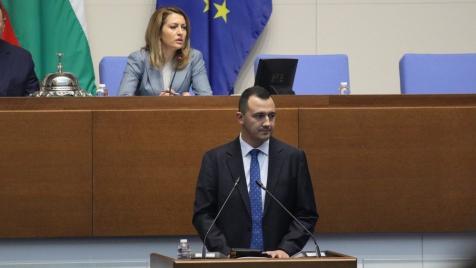The government leaves people without a state-owned store for now
“Store for the People” disappeared without explanation from the agenda of Wednesday's government meeting

The Council of Ministers has withdrawn the item from the agenda that would have created a state-owned company called “Store for the People” EAD. It was on the agenda on Tuesday, but after the announcement of the decisions from Wednesday's government meeting, it appears that no decision has been made.
At the time of publication, there is still no explanation as to why the state is abandoning the creation of such a company, which in theory should sell cheaper essential goods. However, many economists have already commented on the measure, which, in their opinion, would only harm the market and cannot achieve the goals initially announced by MP Delyan Peevski.
The attempt to control markups, as this “People's Store” would theoretically work, is described by critics as a strongly left-wing policy bordering on socialism.
We would like to remind you that responsibility for this state-owned chain was transferred to the Ministry of Agriculture and Food (MAF), headed by Georgi Tahov.
In early June, the MAF told Economic.bg that the state stores would use the commercial premises of the Central Cooperative Union, rather than the buildings of Bulgarian Post, as Peevski had initially wanted. At the end of June, Takhov announced that “Magazine for the People” would start operating in September.
However, there is currently no information about how these stores will operate—whether people will be hired, contracts with producers have been signed, the premises have been furnished, the regulatory framework for their operation has been drawn up, etc.
Apart from the premises and the month, all that is known is that the state has allocated BGN 10 million to be injected into the company's capital.
We recall that the situation was similar with the state-owned petrol stations, an idea of the then finance minister Vladislav Goranov. They were supposed to regulate market prices, but in the end, several million levs were wasted, a few people were employed in management positions, and then the company was closed down.
Translated with DeepL.

 Georgi Zhelyazkov
Georgi Zhelyazkov 


